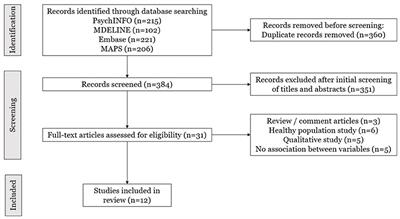1
Psychedelics, Mystical Experience, and Therapeutic Efficacy: A Systematic Review
www.frontiersin.orgThe mystical experience is a potential psychological mechanism to influence outcome in psychedelic therapy. It includes features such as oceanic boundlessness, ego dissolution, and universal interconnectedness, which have been closely linked to both symptom reduction and improved quality of life. In this review, 12 studies of psychedelic therapy utilizing psilocybin, ayahuasca, or ketamine were analyzed for association between mystical experience and symptom reduction, in areas as diverse as cancer-related distress, substance use disorder, and depressive disorders to include treatment-resistant. Ten of the twelve established a significant association of correlation, mediation, and/or prediction. A majority of the studies are limited, however, by their small sample size and lack of diversity (gender, ethnic, racial, educational, and socioeconomic), common in this newly re-emerging field. Further, 6 out of 12 studies were open-label in design and therefore susceptible to bias. Future studies of this nature should consider a larger sample size with greater diversity and thus representation by use of randomized design. More in-depth exploration into the nature of mystical experience is needed, including predictors of intensity, in order to maximize its positive effects on treatment outcome benefits and minimize concomitant anxiety.Systematic Review Registration: PROSPERO, identifier CRD42021261752.
You must log in or register to comment.

